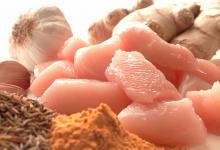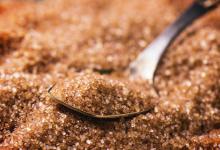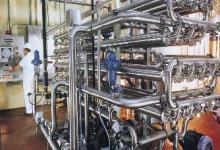- Home
- About Us
- Products
- Enzymology
- Enzyme Applications
- Contact Us
Enzyme Applications
Enzymes were rapidly replacing the use of strong acids in the manufacture of sugar syrups. The use of enzymes provides many advantages, including higher quality products, energy efficiency, and a safer working environment. Processing equipment also lasts longer since the milder conditions reduce corrosion.
Major steps in sweetener production include starch liquefaction by endo-amylases... more
Ethanol fuels can be derived from renewable resources - dedicated agricultural crops such as corn, cassava, sugar cane, and sugar beet or from agricultural byproducts. Ethanol can be used as a 100% replacement for petroleum fuels or as an extender. Ethanol can also be utilized in petroleum fuels as a replacement for the toxic oxygenate, Methyl t-Butyl Ether (MTBE).
Enzymes such as... more
Bromate (carcinogenic) Replacers : Modern bread production is often reliant upon oxidative compounds that can help in forming the right consistency of the dough. Chemical oxidants such as bromates, azodicarbonamide and ascorbic acid have been widely used to strengthen gluten when making bread. Potassium bromate has also been used for this purpose for many years, as it was the first... more
Juices extracted from ripe fruit contain a significant amount of pectin. Pectin imparts a cloudy appearance to the juice and results in an appearance and mouth-feel that many consumers do not find appealing. The enzymes poly-galacturonase and pectinesterase increase juice yield and improve efficiency. Pectinases are naturally occurring enzymes that act on pectin yielding a crystal... more
PROTEASES break down complex proteins into shorter proteins, called peptides, and amino acids, which are the building blocks of protein. Proteases may involve use of carbohydrases to achieve many similar results for proteins as well
Meat Tenderizing : Some cuts of meat are more tender than others. Meat is mostly protein, indeed a rather complex set of proteins with defined structure(s... more
In sugar mills mixed juice, high in starch, typically causes poor mud filtration, a reduced boiling house efficiency and increased molasses formation, thus sucrose losses in the raw sugar factory. Dextranase decomposes dextran that has been synthesized by mico-organisms. The sugar juice becomes less viscous and the clarification process is improved. During the processing time,... more
Textile processing has benefited greatly on both environmental and product quality aspects through the use of enzymes. Prior to weaving of yarn into fabric, the warp yarns are coated with a sizing agent to lubricate and protect the yarn from abrasion during weaving. Historically, the main sizing agent used for cotton fabrics has been starch because of its excellent film forming... more
Enzymes to Improve Membrane Cleaning and Performance
Membrane-based filtration systems are used extensively in raw material, food, and dairy processing, chemical and pharmaceutical production, and water treatment. Ultrafiltration, microfiltration, nanofiltration, reverse osmosis, and other membrane-based technologies are used to purify and concentrate desirable end products while... more








